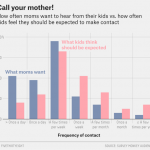Since the next Quick Takes will run after the election, and some subset of my readers will be too unhappy to read election themed Takes at that point, I’m running them this week. But I’ll have mercy during this last run up of mostly useless coverage. Election takes will alternate with miscellaneous awesome things. So, to start on a high note: Vi Hart has another video up about hexaflexagons!
http://www.youtube.com/watch?v=AmN0YyaTD60I’ve been complaining about the Electoral College for as long as I can remember knowing what it was, but Garett Jones of EconLog wrote the first defense of the system that left me uncertain about which side I was on:
[C]andidates only care about winning a plurality of the votes in each state—winning California by one vote is just as good as winning by two million. Of course, there’s always some uncertainty about how things will turn out, so candidates love a cushion, but it’s safe to say that if your state is polling 65% for a particular presidential candidate, neither candidate is likely to campaign there any time soon.
…As it stands, presidential candidates are trying to appeal to the median voter in each state across a large number of states. That’s how you get to be president. This reduces regional tensions because candidates are never trying to get 90% of the votes in a state. When you’re pitting 90% of one region of the country against 90% of another region of the country, you’re substantially raising the probability of social conflict.
Too many civil wars are based on regional differences for this to be no big deal. And you don’t need to get to the point of civil war to get bad outcomes–mere regional transfer programs, switching across regions every four or eight years, would be quite bad enough.
Right now, U.S. presidential candidates have zero interest in winning 100% of a state’s votes. But I’m guessing the campaign consultants could find some underexplored regional tensions if the incentives were right.
Ross Douthat provides an almost real-world example:
The Gallup poll is almost certainly an outlier, of course, and the odds of Romney riding this kind of South-versus-the-country split to a popular majority and an electoral loss remains mercifully low. But if it actually happened – if the nation’s first black president won re-election in the electoral college, and lost the popular vote only because the South gave his opponent an absolutely historic margin of victory — I think more liberals might suddenly recognize the virtues of requiring would-be presidents to assemble truly national coalitions, and the limits, in a republic as large and diverse as this one, to the legitimacy that certain kinds of narrow popular majorities deserve to confer.
But let’s away from the world of political counterfactuals and take some time to consider counterfactual counterfactuals. Wired had a fascinating feature on a visionary videogame designer and the twitter parody of him that turned out to jumpstart new games:
There was at least one person who seemed to understand his frustration. In the summer of 2011, Microsoft’s PR department alerted Molyneux to @PeterMolydeux, a satirical Twitter feed that parodied his public persona. At first Molyneux found the feed annoying; @PeterMolydeux was a pathetic character. His shtick was to spout overheated, ridiculous game ideas that could never get made. One tweet described a Kinect game that required players to cry before they could pass through a gate. Another posited a racing game in which you controlled the road instead of the cars. But over time Molyneux found himself drawn to his online impersonator. The ideas were silly, yes, but they were also oddly compelling. It was clear that whoever was coming up with these concepts had to be awfully clever:
Online sidescrolling co-op 8 player game where each person controls a leg of an octopus. Each leg can attach guns which the player can fire.
War game where at the end you walk through a graveyard looking at each and every headstone of those you killed followed with 1 minute of silence.
3D adventure game where you have amnesia and wake up in a gigantic museum where every room is devoted to a year of your life.
I also love the idea of playing a character who is PRETENDING to be blind, so you have to keep bumping into things to not arouse suspicion.
Back to political I-wish-they-were-counterfactuals… Someone gave British MPs a maths quiz and whatever the depressing version of hijinks is ensued:
A total of 97 MPs were asked this probability problem: if you spin a coin twice, what is the probability of getting two heads?
Among Conservative members, 47% gave the wrong answer, which is disappointing enough. But of the 44 Labour MPs who took part, 77% answered incorrectly.
The survey also asked MPs if they generally felt confident when dealing with numbers –
76% of Tories said they did
72% of Labour MPs surveyed expressed confidence
At the link, you can see a graph of common wrong answers.
A lot of the stuff I link on LessWrong is written for a lay audience, but that’s not really true of Yudkowsky’s latest essay “Logical Pinpointing.” But it appears to be a discussion of math and epistemology leading into a later discussion of ethics, so I figure you all may want to take a run at it.
The next politics link is, unfortunately, relevant to a Christmas present I’m getting my parents, and they read this blog, so I’ve encrypted the text telling you what the link is. If you spend a lot of time on the internet, you probably know where to go to decrypt it. (Sorry, Mom!) [ETA: my mom is a smart cookie and figured out the rule by noticing the url. But then she forbore, because with great power comes great responsibility. If you don’t want to decrypt by hand, use rot13]
kxpq’f cbfgre sebz guvf Zbaqnl jnf njrfbzr! Gur yvax vf: uggc://kxpq.pbz/1127/ynetr/ naq obgu zl cneragf grnpu uvfgbel, fb n tencuvp uvfgbel bs cnegvfna/vqrbybtvpny fcyvgf va Pbaterff jvyy or gur cresrpg tvsg. V qba’g xabj ubj gurl’yy qrpvqr juvpu bssvpr gb unat vg hc va, gubhtu.
And since only some of you could enjoy that last link, the final take is both politics-related and miscellaneously awesome, for it is Playboy‘s interview with Stephen Colbert! He talks about his character and his tv show, but I thought the most startling part occured when he was talking about the death of his two brothers and his father:
PLAYBOY: It’s been almost four decades since it happened. Does the grief dissipate?
COLBERT: No. It’s not as keen. Well, it’s not as present, how about that? It’s just as keen but not as present. But it will always accept the invitation. Grief will always accept the invitation to appear. It’s got plenty of time for you.
PLAYBOY: “I’ll be here.”
COLBERT: That’s right. “I’ll be here when you need me.” The interesting thing about grief, I think, is that it is its own size. It is not the size of you. It is its own size. And grief comes to you. You know what I mean? I’ve always liked that phrase “He was visited by grief,” because that’s really what it is. Grief is its own thing. It’s not like it’s in me and I’m going to deal with it. It’s a thing, and you have to be okay with its presence. If you try to ignore it, it will be like a wolf at your door.
For more Quick Takes, visit Conversion Diary!













